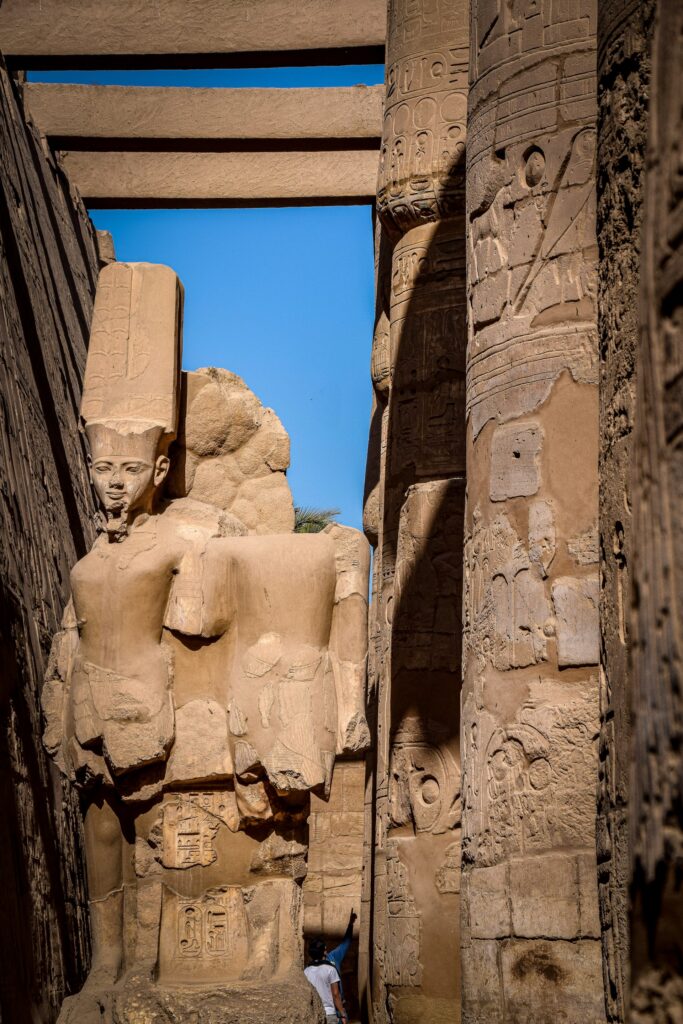How can Muslims live a life of certainty in an uncertain world?
In an interview, Jeff Bezos, the founder of Amazon, explained the bedrock of his strategy:
“I very frequently get the question: ‘what’s going to change in the next 10 years?’ And that is a very interesting question; it’s a very common one. I almost never get the question: ‘what’s not going to change in the next 10 years?’ And I submit to you that the second question is actually the more important of the two – because you can build a business strategy around the things that are stable in time.”
“What’s not going to change in the next 10 years?”
The question that helped Jeff Bezos to build an empire is not only relevant for business.
In an ever-changing world, this question is essential to navigating through life.
We can even tweak this question to become:
“What’s not going to change until the end of times?”
The Two Worlds Muslims Live In

We live in two worlds.
The first one is the world of divine laws. The second one is the world of social relationships.
The divine laws are immutable. They are the rules by which Allah conducts His affairs.
In the Quran, they are referred to as the Sunnah of Allah:
“This is the established Sunnah of Allah with those who passed on before; and you will not find in the Sunnah of Allah any change.” [Quran 33:62]
As certain as gravity, the Sunnah of Allah is a constant that applies to all of us depending on what we do (and what we don’t).
In contrast to this world of certainties, there is the world of social relationships.
It’s the ever-changing world of people. Whatever forces are animating human beings, this world reflects them.
Some of these forces are the desire for status and power, greed, love, hate, envy, arrogance, humility, or justice.
A quick look at any social landscape will tell you which forces are dominating.
The world of people is a source of stress, anxiety, and fear.
On the contrary, the world of divine laws is a source of calmness, confidence, and security.
Examples of the Sunnah of Allah from the Quran

On living the good life:
“Whoever does good, whether male or female, and is a believer, We will surely bless them with a good life, and We will certainly reward them according to the best of their deeds.” [Quran 16:97]
On living a miserable life:
“But whoever turns away from My Reminder will certainly have a miserable life, then We will raise them up blind on the Day of Judgment.” [Quran 20:124]
On the end of Nations:
“And for every nation is a specified term. So when their time has come, they will not remain behind an hour, nor will they precede it.” [Quran 7:34]
When people dismiss the reminders, Allah corrects them in the hope that they’ll come back on track:
“We will certainly make them taste some of the minor torment in this life before the major torment of the Hereafter, so perhaps they will return to the Right Path. [Quran 32:21]
When the reminders and corrections don’t work, Allah gives more time, signaling a painful end:
“Those who disbelieve should not think that living longer is good for them. They are only given more time to increase in sin, and they will suffer a humiliating punishment.” [Quran 3:78]
The final act:
“When they became oblivious to warnings, We showered them with everything they desired. But just as they became prideful of what they were given, We seized them by surprise, then they instantly fell into despair!” [Quran 6:44]
On change:
“Indeed, Allah will not change the condition of a people until they change what is in themselves.” [Quran 13:11]
The promise of Allah–and Allah never fails in His promise:
“Allah has promised those of you who believe and do good that He will certainly make them successors in the land, as He did with those before them; and will surely establish for them their faith which He has chosen for them; and will indeed change their fear into security—provided that they worship Me, associating nothing with Me. But whoever disbelieves after this promise, it is they who will be the rebellious.” [Quran 24:55]
What Makes the Divine Laws Easy to Dismiss?
In a world where the strongest eat the weakest, we are in our right to ask: Where are the divine laws?
When righteousness leads to misery and deceit to success, we can be tempted to doubt the Sunnah of Allah.
To dissipate any confusion, we need to understand how the divine laws work.
A common misconception is to assume that any success in the world of people is a favor from Allah.
Nothing can be furthest from the truth. It can be a reward for good deeds or a trap announcing a painful end.
What makes the divine laws easy to dismiss is their nature. Not only they are unseen but most important, they are gradual. They follow a process over a long period of time.
For example, never Allah destroys a nation for their first misdeeds.
The process can be sending a Messenger, constant reminders, trials, and then, when Allah sees no intention to change, He might wipe them out.
In addition, the world of people doesn’t help in grasping the divine reality. It acts as a blinder.
Our daily lives are impacted by each other decisions and actions. We spend our time fixing, adapting, or compromising.
Caught in this ever-changing world, we dismiss the superior reality that subdues everything else.
It’s impossible to see the unfolding of the divine reality while being busy with our daily lives.
We need some distance from the events. We need to pause, reflect, and consider the long term over the instantaneous.
Final Thoughts on the Certainties of Muslims

“What’s not going to change until the end of times?”
Muslims can only derive certainties from the Sunnah of Allah.
The divine laws were, are, and will always be the same.
And when we forget about them, it is easy for us to fall into despair and helplessness.
It’s critical to remember these laws, especially now that Muslims are living in difficult times.
Pandemic, concentration camps, discriminating laws, devastated countries, barbaric occupation…
Muslims are facing all kinds of challenges.
But when we look at the past, the tougher was the hardship, the greater was the victory.
The humble beginning of Islam led to the conquest of Mecca. The devastation of the Mongols was followed by the Ottoman empire.
Each time, the weakness developed into strength, and the promise of Allah was fulfilled.
As Marcus Aurelius said:
“Look back over the past, with its changing empires that rose and fell, and you can foresee the future, too.”
So whether we are individuals, communities, or nations living a hard time, we need to go back to the Sunnah of Allah.
It will give us the certainties and comfort we need to navigate this uncertain world.
Article posted: 16 May 2021
Popular Articles
- 7 Lessons from Luqman that Will Make You Wise
- How to Enjoy Salat and Make it Meaningful
- Mongols Invasions: Some Forgotten Lessons to Today’s Muslims
- For or Against Vaccines? That’s Not Really the Question
- Are Muslims Meant to Be Sleep Deprived?
- Islamic Psychology: A Model Where Faith Has Its Place
- Muslims Judging Each Other: Why and How to Be Less Judgy
- Allah According to Allah: The Beauty Behind the Verse of Light
- Blindness: From the Invisible Gorilla to the Quranic Perspective
- How to Make People Change their Mind: Persuasion!
